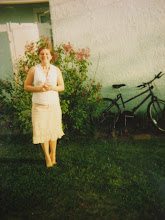
It's true that I have a massive love for wool. Some might consider it an obsession. By some, I mean my husband. ;) He obligingly tries on every wool sweater I buy for him at thrift stores. I've already rummaged through the sweaters he'd been given throughout the years as gifts, and found a sweater of 100% Alpaca wool! Now why is that so exciting? Let me share all the good stuff about wool!
Wool is a natural fiber, meaning it is not artificial fiber, which is man-made. A wool sweater can last for years! Sweaters made from polyester (or a blend with polyester) usually end up pilling. Pilling is when little balls form all over the sweater and it gets really fuzzy and not so nice-looking. Polyester does not breathe easily, which is not great for your skin. Wool, on the other hand, does breathe easily. One of my favorite things about wool is that it is antimicrobial. This means that it essentially self-cleans. It does not retain smells, so you rarely have to wash it (which is great, because most wool sweaters are hand-wash only). Because of this, wool makes wonderful diaper covers if you cloth-diaper. You can put a wool cover over a cloth diaper, and it will keep the wetness inside--won't even soak through the wool! It only needs to be washed about once a month when used as a diaper cover. As many people know, wool is also very warm which is great during the winter.
Now, for the different types of wool! Sheeps wool is the most widely-used type. Merino sheeps wool is a very soft wool--almost cashmere-like. It is one of my favorites, and when I see a merino wool sweater at a thrift store, I grab it. Lambswool is also very soft and fluffy because it comes from a young sheep. It is the most hypoallergenic of all wools and is great for clothing and blankets. There are other types of sheep wool as well, but I'd rather not type a novel here. ;)
Alpaca wool is a fine, silky, lightweight wool. It has the ability to keep you extremely warm. It is normally very expensive to buy an alpaca wool sweater, but if you keep your eyes open then you may stumble upon one in a thrift store!
Mohair is produced by the angora goat. It is used in good-quality sweaters and other fabrics. It is strong but very lightweight, and it does not stretch easily.
Angora is not actually from the angora goat. It is from the angora rabbit's fur. Angora is the warmest and possesses the best moisture-wicking properties of any natural fiber. Because the fibers are so fine, they are usually blended with other types of wool to make a piece of clothing. Angora wool is very soft and has a "floaty" look to it.
Last but never least, is one of my favorites--cashmere. Cashmere comes from the kashmir goat which is native to China, India, Tibet, and the middle east. The wool comes from the downy layer beneath the goat's coarser outer hair. It is combed off of the goat instead of sheered. Because of this, only a small amount of wool can be obtained from each goat per year. This is why cashmere clothing is so expensive. My favorite aspect of cashmere is that it is incredibly warm in just a thin, single layer! No need to bulk up with heavy sweaters when you're headed to the mountains--just one thin layer under your coat. Cashmere sweaters can also be easily found at thrift stores. But beware--some acrylic sweaters feel similar so be sure and check the label.
Well, now you know all about my passion for wool. I'm kind of a fabric junkie so I'll probably write more about other types in the future. Cloth-diapering is to blame. It's funny how much I learned just from doing that!










